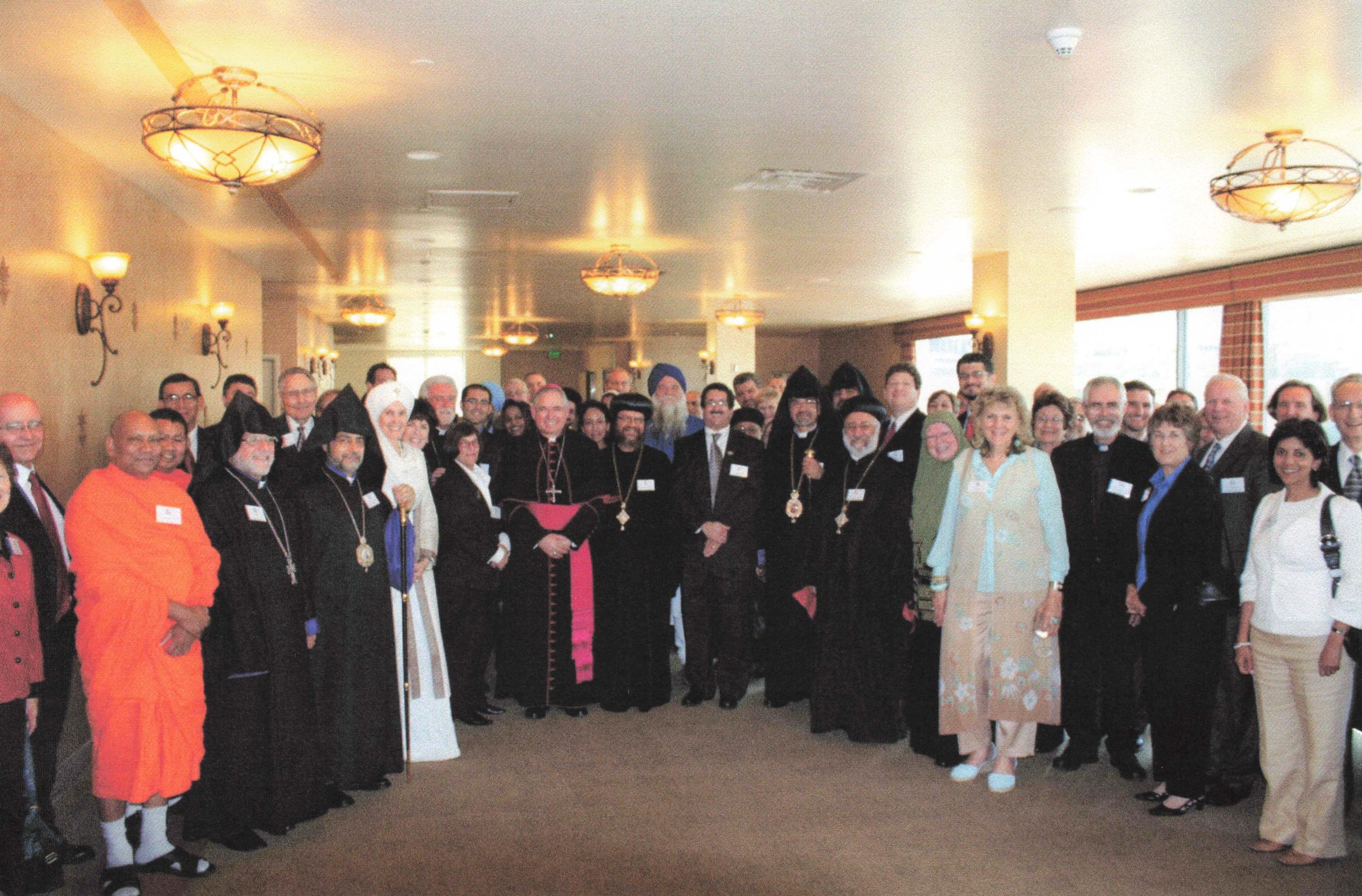“The pluralism and the diversity of religions, colour, sex, race and language are willed by God in His wisdom, through which He created human beings. This divine wisdom is the source from which the right to freedom of belief and the freedom to be different derives.”
– Document on Human Fraternity, Signed by Pope Francis and Sheikh Ahmed Al-Tayeb, Grand Imam of Al-Azhar, on February 4, 2019

Just as the Second Vatican Council promulgated the Decree on Ecumenism to govern the Catholic Church’s relations with our fellow Christians, so it issued the Declaration on the Relation of the Church to Non-Christian Religions, called Nostra Aetate. This 1965 document is the shortest and most revolutionary to be promulgated as a result of Vatican II. Only five paragraphs long, it essentially reversed the Catholic Church’s approach to non-Christian Religions, changing its stance from being the sole possessor of the truth to acknowledging that non-Christian Religions “often reflect a ray of that Truth which enlightens all men” (paragraph 2). The document further states that the “Catholic Church rejects nothing that is true and holy in these religions” (paragraph 2).
Just as his four predecessors, Pope Francis has worked tirelessly to promote and further Interreligious Dialogue. One example is the above quoted Document on Human Fraternity for World Peace and Living Together.
In addition, below are excerpts from Pope Francis’ Apostolic Exhortation The Joy of the Gospel (Paragraphs 247-254), discussing the importance and manner of Interreligious Dialogue:
250. An attitude of openness in truth and in love must characterize the dialogue with the followers of non-Christian religions, in spite of various obstacles and difficulties, especially forms of fundamentalism on both sides. Interreligious dialogue is a necessary condition for peace in the world, and so it is a duty for Christians as well as other religious communities. This dialogue is in first place a conversation about human existence or simply, as the bishops of India have put it, a matter of “being open to them, sharing their joys and sorrows”. In this way we learn to accept others and their different ways of living, thinking and speaking. We can then join one another in taking up the duty of serving justice and peace, which should become a basic principle of all our exchanges. A dialogue which seeks social peace and justice is in itself, beyond all merely practical considerations, an ethical commitment which brings about a new social situation. Efforts made in dealing with a specific theme can become a process in which, by mutual listening, both parts can be purified and enriched. These efforts, therefore, can also express love for truth.
251. In this dialogue, ever friendly and sincere, attention must always be paid to the essential bond between dialogue and proclamation, which leads the Church to maintain and intensify her relationship with non-Christians. A facile syncretism would ultimately be a totalitarian gesture on the part of those who would ignore greater values of which they are not the masters. True openness involves remaining steadfast in one’s deepest convictions, clear and joyful in one’s own identity, while at the same time being “open to understanding those of the other party” and “knowing that dialogue can enrich each side”. What is not helpful is a diplomatic openness which says “yes” to everything in order to avoid problems, for this would be a way of deceiving others and denying them the good which we have been given to share generously with others. Evangelization and interreligious dialogue, far from being opposed, mutually support and nourish one another.
247. We hold the Jewish people in special regard because their covenant with God has never been revoked, for “the gifts and the call of God are irrevocable” (Rom11:29). The Church, which shares with Jews an important part of the sacred Scriptures, looks upon the people of the covenant and their faith as one of the sacred roots of her own Christian identity (cf.Rom 11:16-18). As Christians, we cannot consider Judaism as a foreign religion; nor do we include the Jews among those called to turn from idols and to serve the true God (cf. 1 Thes 1:9). With them, we believe in the one God who acts in history, and with them we accept his revealed word.
248. Dialogue and friendship with the children of Israel are part of the life of Jesus’ disciples. The friendship which has grown between us makes us bitterly and sincerely regret the terrible persecutions which they have endured, and continue to endure, especially those that have involved Christians.
249. God continues to work among the people of the Old Covenant and to bring forth treasures of wisdom which flow from their encounter with his word. For this reason, the Church also is enriched when she receives the values of Judaism. While it is true that certain Christian beliefs are unacceptable to Judaism, and that the Church cannot refrain from proclaiming Jesus as Lord and Messiah, there exists as well a rich complementarity which allows us to read the texts of the Hebrew Scriptures together and to help one another to mine the riches of God’s word. We can also share many ethical convictions and a common concern for justice and the development of peoples.
252. Our relationship with the followers of Islam has taken on great importance, since they are now significantly present in many traditionally Christian countries, where they can freely worship and become fully a part of society. We must never forget that they “profess to hold the faith of Abraham, and together with us they adore the one, merciful God, who will judge humanity on the last day”.The sacred writings of Islam have retained some Christian teachings; Jesus and Mary receive profound veneration and it is admirable to see how Muslims both young and old, men and women, make time for daily prayer and faithfully take part in religious services. Many of them also have a deep conviction that their life, in its entirety, is from God and for God. They also acknowledge the need to respond to God with an ethical commitment and with mercy towards those most in need.
253. In order to sustain dialogue with Islam, suitable training is essential for all involved, not only so that they can be solidly and joyfully grounded in their own identity, but so that they can also acknowledge the values of others, appreciate the concerns underlying their demands and shed light on shared beliefs. We Christians should embrace with affection and respect Muslim immigrants to our countries in the same way that we hope and ask to be received and respected in countries of Islamic tradition. I ask and I humbly entreat those countries to grant Christians freedom to worship and to practice their faith, in light of the freedom which followers of Islam enjoy in Western countries! Faced with disconcerting episodes of violent fundamentalism, our respect for true followers of Islam should lead us to avoid hateful generalizations, for authentic Islam and the proper reading of the Quran are opposed to every form of violence.
254. Non-Christians, by God’s gracious initiative, when they are faithful to their own consciences, can live “justified by the grace of God”,and thus be “associated to the paschal mystery of Jesus Christ”. But due to the sacramental dimension of sanctifying grace, God’s working in them tends to produce signs and rites, sacred expressions which in turn bring others to a communitarian experience of journeying towards God. While these lack the meaning and efficacy of the sacraments instituted by Christ, they can be channels which the Holy Spirit raises up in order to liberate non-Christians from atheistic immanentism or from purely individual religious experiences.The same Spirit everywhere brings forth various forms of practical wisdom which help people to bear suffering and to live in greater peace and harmony. As Christians, we can also benefit from these treasures built up over many centuries, which can help us better to live our own beliefs.
